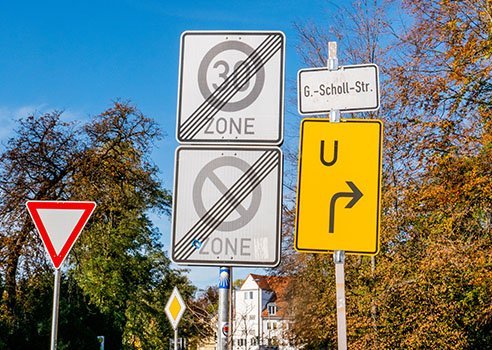Word count: 754 words
Reading time: About 3 minutes
Ambiguous writing is generally a bad thing. But there are times when a writer ought to welcome a healthy does of ambiguity. Here’s why…
When I learned I was pregnant with triplets, 20 years ago, I was desperate to know their gender. Did I, God-forbid, have three boys? (In my mid-30s, I was sure I didn’t have the energy for that!)
Now, with the benefit of many years of parenting, I can recognize my desire for that knowledge as not just mere curiosity. It arose out of my intolerance for ambiguity.
I’ve always been the kind of person who wanted to know the bad news right away. When I submitted a story to an editor, in times past, I immediately wanted to know what he or she disliked about it. If I went to the doctor, I wanted to know what dread disease I had. If I had a contractor come to the house, I wanted to know how much the structural repair was going to cost. (Ironically, we eventually ended up having to rebuild our whole house!)
But when my kids were born (two girls and one boy), it seemed my entire life became thoroughly ambiguous. Would I like more help in looking after three babies or would I prefer less, in order to safeguard our privacy? Could we go on holiday, for fun, or would it be more relaxing to stay at home without having to herd three infants?
And, of course, there were other, deeper ambiguities. Were they spending too much time with playmates? Or not enough to enough to build meaningful friendships? Were we wise in homeschooling them because of learning disabilities? Or were we risking their educational futures by not forcing them to adapt to school? Finally (and currently!) can we enjoy having them around while they’re still here at age 19, or should we be eager for the nest to empty itself out?
Being a parent has taught me that I had two choices. I could worry myself to death. Or, I could embrace ambiguity and learn how to hold two conflicting ideas in my mind at once. I chose ambiguity and this has made me a better writer. Why? Here are five reasons:
1. I have less to worry about. Because I expect to feel uncertain for at least some of my writing time, I don’t waste my time thinking I’m an inadequate writer. And, like baking cakes, doing math or riding a unicycle, writing is easier if you think you can do it.
2. I don’t rush to premature conclusions. I understand that I always need some “not-knowing” time where I feel a bit uncomfortable. This is a normal part of the writing process. It doesn’t mean I’m incapable of writing or, worse, incapable of thought. It simply means to I need to schedule my thinking time. (To do this, I like going for a walk. And doing a mindmap.) In turn, this allows me to develop better, deeper ideas.
3. I’m more willing to take risks. Readers sometimes express surprise at the stories I tell in my writing. “You’re so personal,” they say. Recently, a former colleague I hadn’t seen in several years said he knew more about me than I knew about him. I was momentarily nonplussed. Then I realized he was telling me he’d been reading my column! (Thanks, Nick!) Embracing ambiguity is part of what’s made me willing to tell these sorts of stories because I’m able to balance the lack of privacy with the benefit of a deeper connection with my readers.
4. It helps me to be more adaptive. Writers who embrace ambiguity understand that while 2 + 2 will always equal 4, there is never “one right way” to approach a writing problem. That, in fact, is one of the many joys of writing. There’s always more than one way to write a sentence.
5. It allows me to write without editing. By turning off the critical, judging, editor- voice inside my head I’m allowing the creative part of my brain space in which to work. (You should definitely do the same thing!) Later, of course, I welcome back the editor-critic and enjoy the benefits of revision. But I don’t shortchange the valuable period of ambiguity before I let the editor take the reins.
F. Scott Fitzgerald said it eloquently when he wrote: “The test of a first-rate intelligence is the ability to hold two opposing ideas in mind at the same time and still retain the ability to function.”
But philosopher (and bass guitarist) Keith Richards said it even more memorably: “I look for ambiguity when I’m writing because life is ambiguous.”
Are you any good at dealing with ambiguity? We can all learn from each other so please share your thoughts with my readers and me by commenting below. (If you don’t see the comments box, click here and then scroll to the end.)


